
Freedom Flotilla II
" which will carry humanitarian aid to the besieged Gaza Strip. (Photo MEMO)" width="419" height="279" /> The Turkish humanitarian relief organisation (IHH) is currently organising a “Freedom Flotilla II” which will carry humanitarian aid to the besieged Gaza Strip. (Photo MEMO)Ankara, 29 Ramadan 1435/27 July 2014 (MINA) – The Turkish humanitarian relief organisation (IHH) is currently organising a “Freedom Flotilla II” which will carry humanitarian aid to the besieged Gaza Strip, IHH chairman Bulent Yildrim said Thursday.
In statements to Gulf Online, Yildrim said that his organisation has embarked on legal procedures and paperwork required to obtain a permit for the trip.
As soon as a final permit is issued, the IHH along with other international organisations will immediately set up the convoy, Middle East Monitor (MEMO) quoted by Mi’raj Islamic News Agency (MINA) as reporting, Sunday.
The chairman of IHH, a major organiser of the Gaza Freedom Flotilla I, said that Turkish army troops will accompany the ships to protect it from any potential attack, pointing out that his organisation demanded the government to provide protection for them as Turkish citizens.
Also Read: YouTuber Ms. Rachel Wears Gaza Children’s Artwork Dress at Glamour Magazine Awards
Maze Keheil, the president of the European Campaign for Lifting the Siege on Gaza, confirmed his campaign’s intention to take part in the new flotilla, as it did in first one in 2010.
Gaza Freedom Flotilla I
The Gaza Freedom Flotilla, organized by the Free Gaza Movement and the Turkish Foundation for Human Rights and Freedoms and Humanitarian Relief (İHH), was carrying humanitarian aid and construction materials, with the intention of breaking the Israeli-Egyptian blockade of the Gaza Strip. In normal circumstances, aid is brought to Israel to be inspected and then transferred to Gaza.
On 31 May 2010, Israeli forces boarded the ships from speedboats and helicopters and killed nine activists (see Gaza flotilla raid). Widespread international condemnation of and reaction to the raid followed, Israel–Turkey relations were strained, and Israel subsequently eased its blockade on the Gaza Strip.
Also Read: White House: President Trump to Meet Syrian President
The flotilla was the Free Gaza Movement’s ninth attempt to break the naval blockade imposed by Israel on the Gaza Strip. Israel proposed inspecting the cargo at the Port of Ashdod and then delivering non-blockaded goods through land crossings, but this proposal was turned down. Israeli forces then raided and seized the Gaza-bound ships in international waters of the Mediterranean Sea.
Five shipments had been allowed through prior to the 2008–09 Gaza War, but all shipments following the war were blocked by Israel. This flotilla was the largest to date. An Islamic aid group from Turkey, the İHH (İnsani Yardım Vakfı) (Foundation for Human Rights and Freedoms and Humanitarian Relief) sponsored a large passenger ship and two cargo ships.
While one U.N report found Israel’s blockade of Gaza to be legal, another set of U.N. experts, reporting to the Human Rights Council, came to the opposite conclusion finding that it violated international law.
Gaza flotilla raid
Also Read: Latest Israeli Airstrike in Southern Lebanon: 2 Dead, 7 Wounded
The Gaza flotilla raid was a military operation by Israel against six civilian ships of the “Gaza Freedom Flotilla” on 31 May 2010 in international waters in the Mediterranean Sea. The flotilla, organized by the Free Gaza Movement and the Turkish Foundation for Human Rights and Freedoms and Humanitarian Relief (İHH), was carrying humanitarian aid and construction materials, with the intention of breaking the Israeli blockade of the Gaza Strip.
On 31 May 2010, Israeli Shayetet 13 naval commandos boarded the ships from speedboats and helicopters in order to force the ships to the Israeli port of Ashdod. On the Turkish ship MV Mavi Marmara, according to Israel’s own report, the Israeli Navy faced resistance from about 40 of the 590 passengers, including IHH activists – described in an Israeli report as a separate “hardcore group” – who were said to be armed with iron bars and knives.
During the struggle, nine activists were killed including eight Turkish nationals and one Turkish American, and many were wounded. According to a UN report, all activist deaths were caused by gunshots, some of them at point blank range or from behind, “execution style”.
On 23 May 2014, the tenth victim of Israeli gunshots died in hospital after being in a coma for four years. Ten of the commandos were also wounded, one of them seriously. The five other ships in the flotilla employed passive resistance, which was suppressed without major incident, although many of the passengers on board all ships were beaten, some ending up with broken bones. The ships were towed to Israel, where all passengers were detained and deported.
Also Read: Egypt Urges Israel to Withdraw from Five Occupied Outposts in Southern Lebanon
The raid drew widespread condemnation internationally and resulted in a deterioration of Israel–Turkey relations. Israel consequently eased its blockade on the Gaza Strip. all activists were freed, yet only the Turkish and Greek ships were returned. Israel confiscated and continues to hold the other boats, as well as most of the property (including all media recordings, which is important evidence) of over 700 passengers.
In September 2010, the United Nations Human Rights Council (UNHRC) released its report on the Israeli boarding and seizure of the vessels. The report found that the Israeli blockade of Gaza is illegal, and therefore, the boarding and seizure of the vessels was illegal, that the detention of the passengers was illegal, that the confiscation of the passengers’ possessions was illegal and there was willful killing on the part of the Israeli commandos.
On 2 August 2010, United Nations Secretary-General Ban Ki-moon announced that the U.N. would conduct an investigation of the incident. The report was published on 2 September 2011 after being delayed, reportedly to allow Israel and Turkey to continue reconciliation talks. The report found that the Israeli naval blockade of Gaza was legal, and that there were “serious questions about the conduct, true nature and objectives of the flotilla organizers, particularly IHH”.
The report also found that Israel’s army used excessive force while the flotilla was still in international waters, and concluded that the degree of force used against the Mavi Marmara was “excessive and unreasonable”, and that the way Israel treated detained crew members violated international human rights law.
Also Read: Riyadh and Madinah Named in UNESCO’s Creative Cities Network
The government of Israel alleged that the flotilla was organized as a provocation or media stunt, and that a hard core of about 40 IHH activists were prepared from the beginning for a violent confrontation. The New York Times, in an editorial, said, “At least some of the activists on the lead ship, the Mavi Marmara, were seeking a confrontation – and got one.”
On 22 March 2013, in a half-hour telephone exchange between Israel’s Prime Minister Benjamin Netanyahu and Turkey’s Prime Minister Recep Tayyip Erdoğan, the former apologized on behalf of his nation; Erdoğan accepted the apology and both agreed to enter into further discussions. As of May 2014, although several points of agreement had been discussed between the two nations, no agreement has been finalized. (T/E01/IR)
Mi’raj Islamic News Agency (MINA)
Also Read: Turkish Foreign Minister Meets Hamas Political Bureau Members in Istanbul





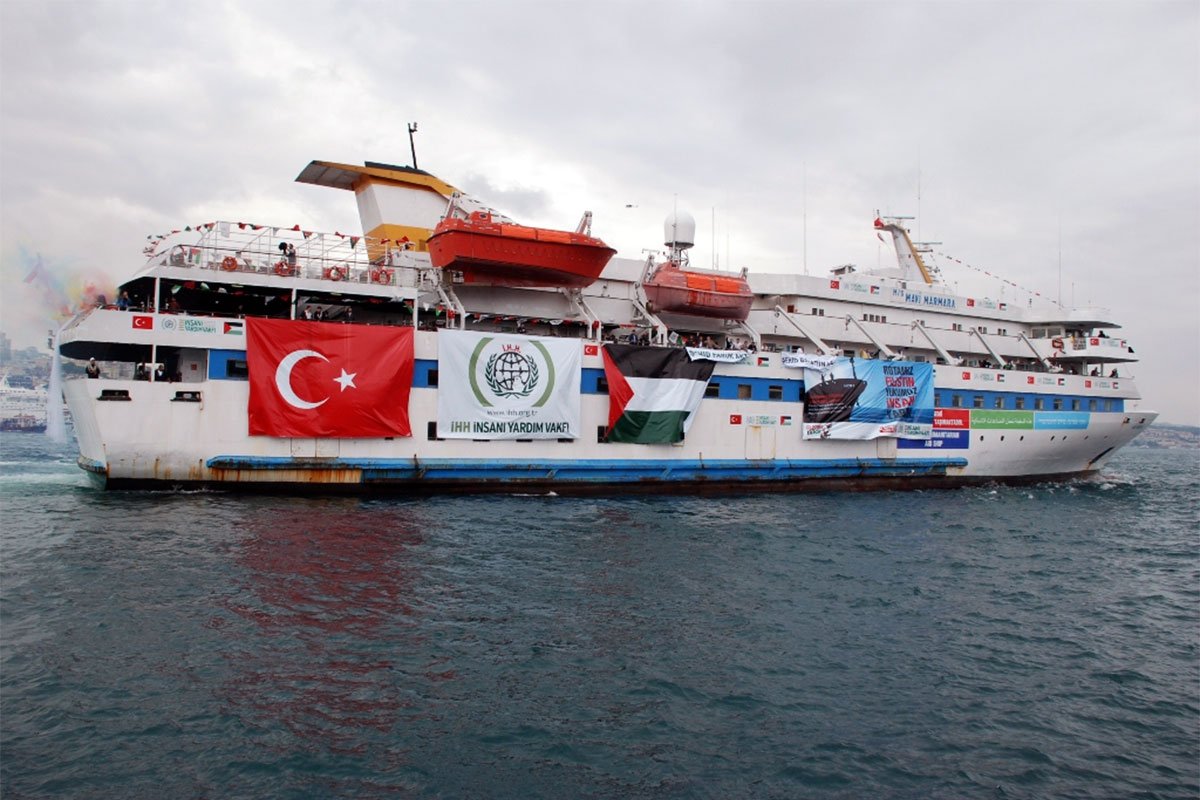


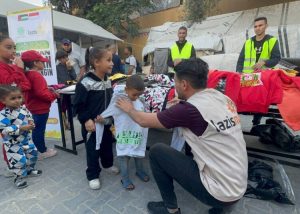


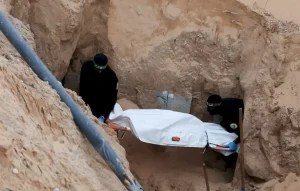



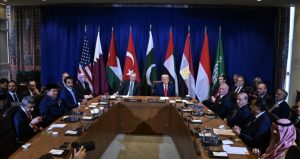


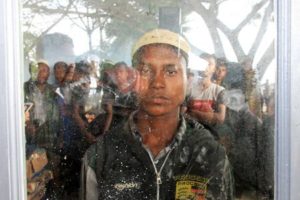

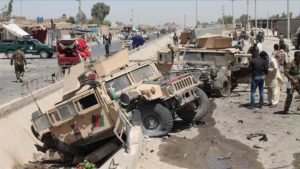



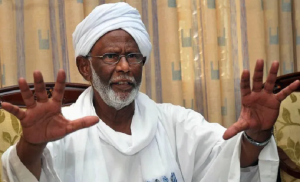


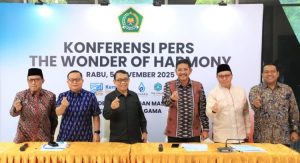
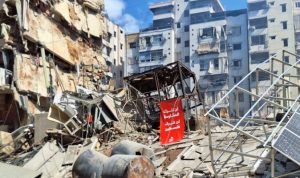





 Mina Indonesia
Mina Indonesia Mina Arabic
Mina Arabic